Effects of endocrine disrupting chemicals
Our body’s natural detox system is not designed for the 1000’s of chemicals we are exposed to in everyday life. They enter our bodies in the food we eat, liquids we drink, the air we breathe, and from everyday products that touch our skin, nails, or hair. So how does the body cope?

Endocrine disrupting chemicals (EDCs) get their name because they can mimic or block the normal actions of hormones in the endocrine glands of the body. Almost 1000 chemical substances have been identified as having potential endocrine disrupting effects.
Endocrine disrupting chemicals
EDCs move around in the bloodstream where they have potential to interfere with hormone signals and natural levels released by the endocrine glands. This can lead to changes in the effects of hormones have on body functions such as metabolism and detoxification.
The endocrine system is a collection of glands which produce and secrete around 50 different hormones including oestrogen and progesterone. These hormones are important in many key body functions, especially growth, metabolism, fertility, reproduction, and sexual development.
Because hormones are so sensitive to any disruption, exposing the body to chemicals from the environment can unbalance natural levels and gland functions, hence the term endocrine disrupting chemicals.
Predicting how exposure to endocrine disrupting chemicals might influence individual health is still not possible, but the evidence is growing that they expose us all to higher health risks.
The endocrine system
The endocrine system is a series of glands that release around 50 different hormones into the bloodstream. They regulate growth, organ function, metabolism, and reproduction. Hormone actions are highly sensitive to any disruptions in their normal levels, including exposure to everyday chemicals, even at low levels.
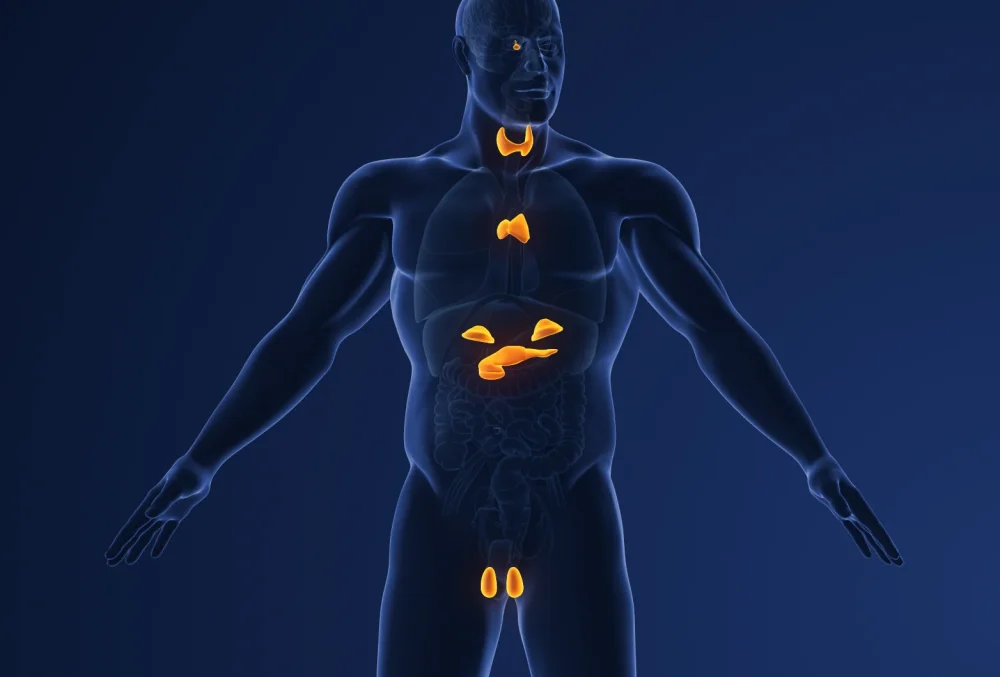
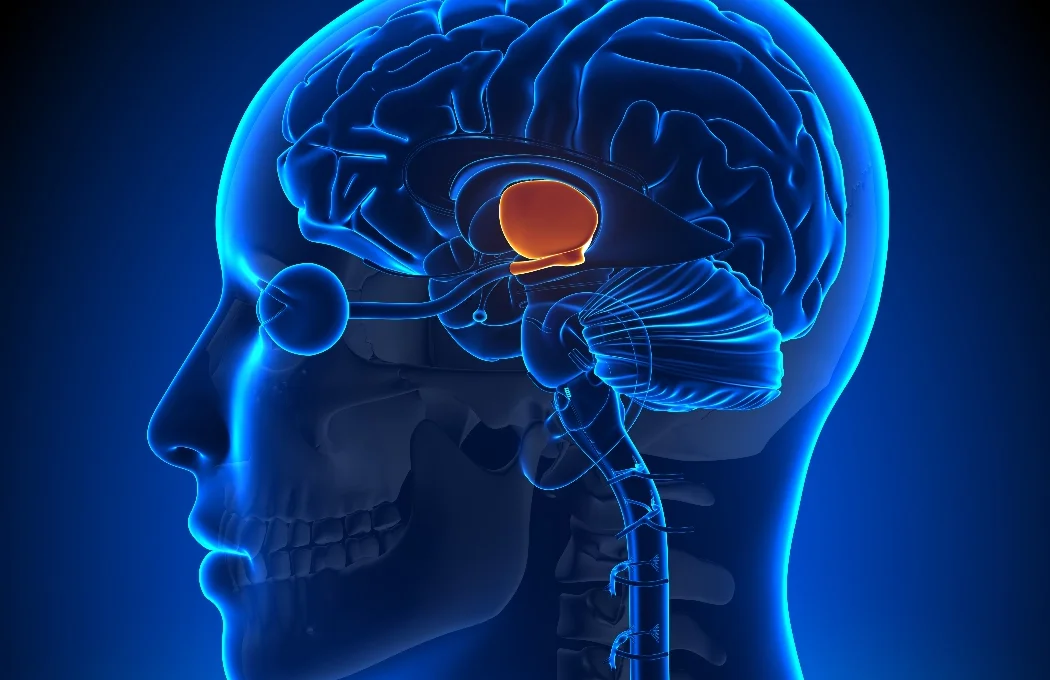
Hypothalamus
Regulates stable conditions in the body and responds to any changes. Secretes hormones that regulate thirst, sleep patterns, and involuntary responses such as body temperature.
Associated disorders
Diabetes. Weight regulation. Menstrual cycle changes.
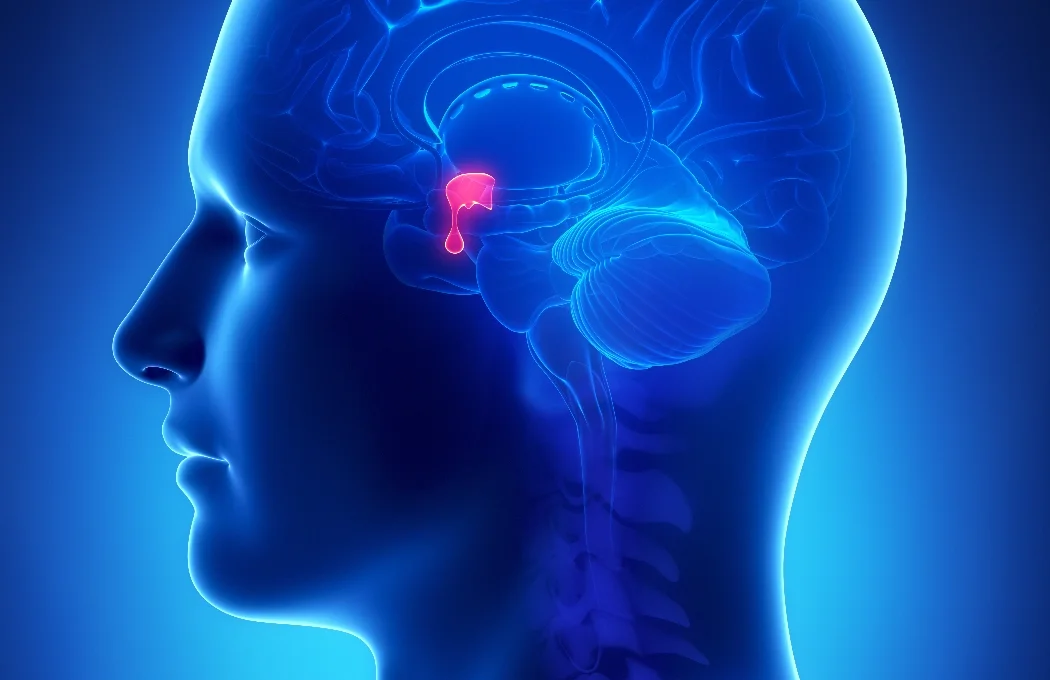
Pituitary gland
The ‘master gland’. Responds to information from the brain and directs instructions to other hormone glands. Secretes hormones that act on glands that regulate growth. Regulates oestrogen and testosterone production.
Associated disorders
This gland plays a key role in the functions of other glands.
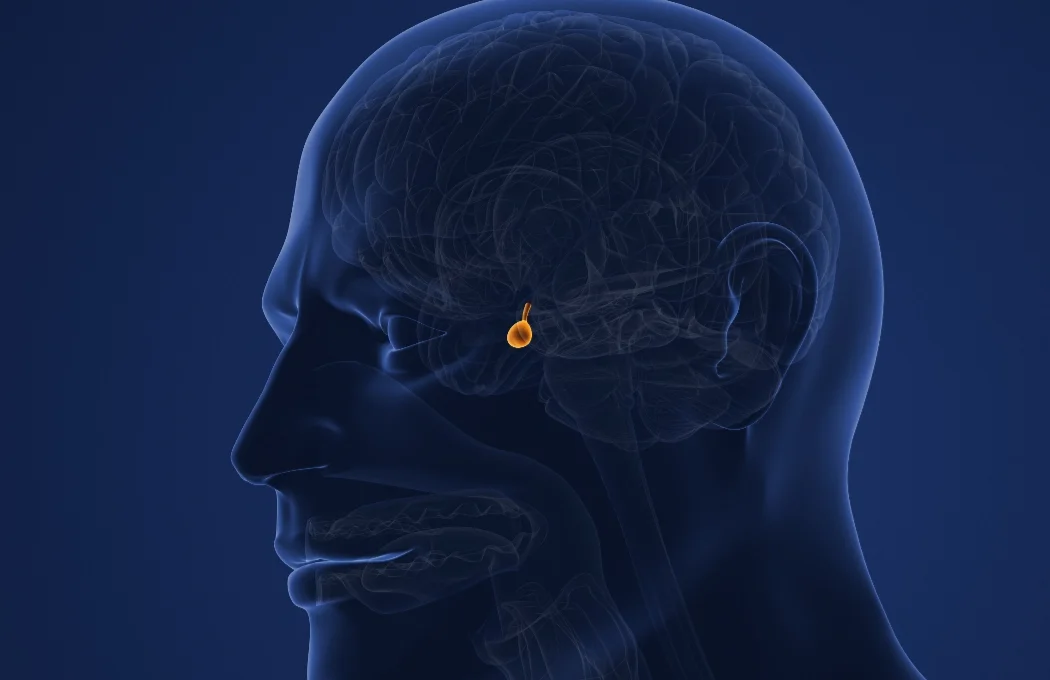
Pineal gland
Produces melatonin important to healthy sleep cycles, body rhythms, and reproductive functions. Sometimes referred to as the ‘endocrine clock’.
Associated disorders
Sleep disturbances. Mood changes. Menstrual cycle regulation.

Thyroid gland
Makes thyroxine and other hormones to regulate metabolism and energy. Disruptions can slow down or speed up metabolism resulting in weight gain and loss, gastric problems, and fatigue.
Associated disorders
Over and under active thyroid disorders such as energy levels, sleep, and mood.

Parathyroid glands
Set of small glands that produce the parathyroid hormone which controls calcium levels in the blood. Targets organs in the body that support bone health.
Associated disorders
Chronic Fatigue. Brittle bones.
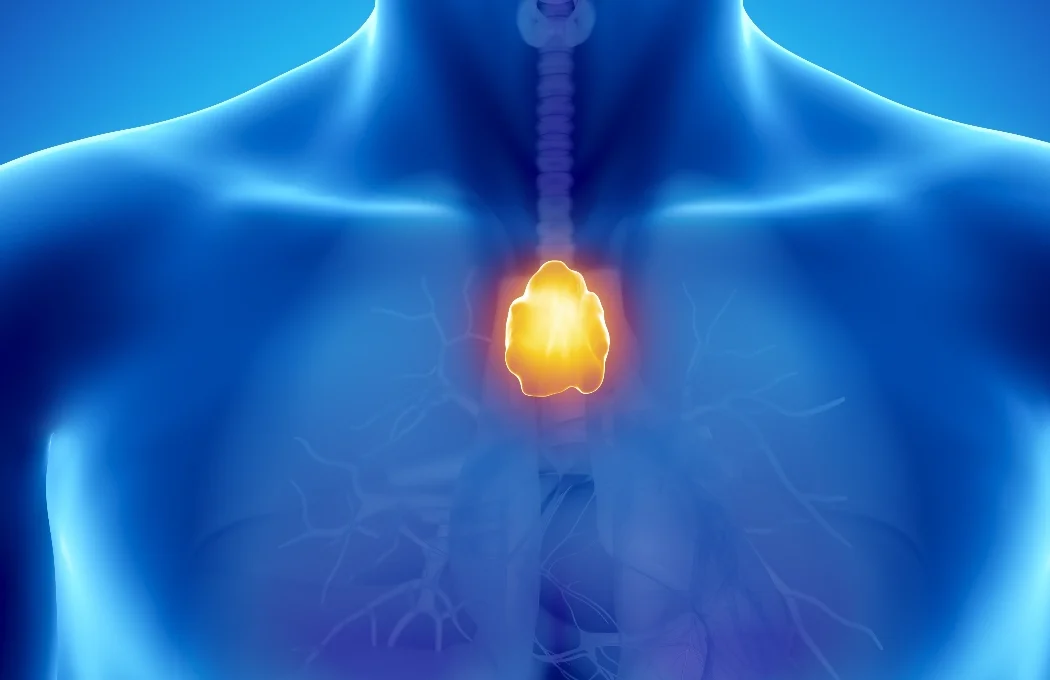
Thymus gland
Produces thymosin needed for T-lymphocytes cells which fight infection within the body. An important gland for children, it shrinks when puberty is complete. Plays a vital role in the body’s lymphatic systems.
Associated disorders
Immune Dysfunction. Asthma. Bronchitis.
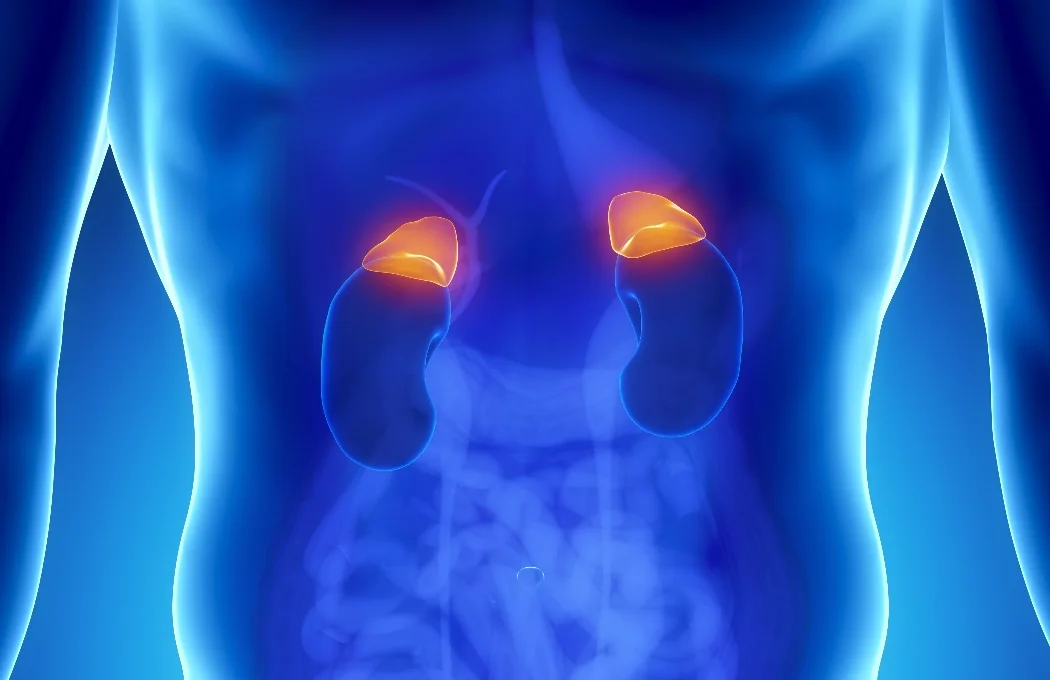
Adrenal glands
Produce hormones including cortisol and adrenalin which control body responses including heart rate, blood flow to muscles, and glucose production. Play an important role in regulating metabolism.
Associated disorders
Fatigue. Metabolic changes.

Pancreas
Monitors the blood and produces hormones that help to break down food. Produces insulin and glucagon which regulate the amount blood sugar to ensure the body has a constant supply of energy.
Associated disorders
Diabetes. Metabolic disorders. Obesity.
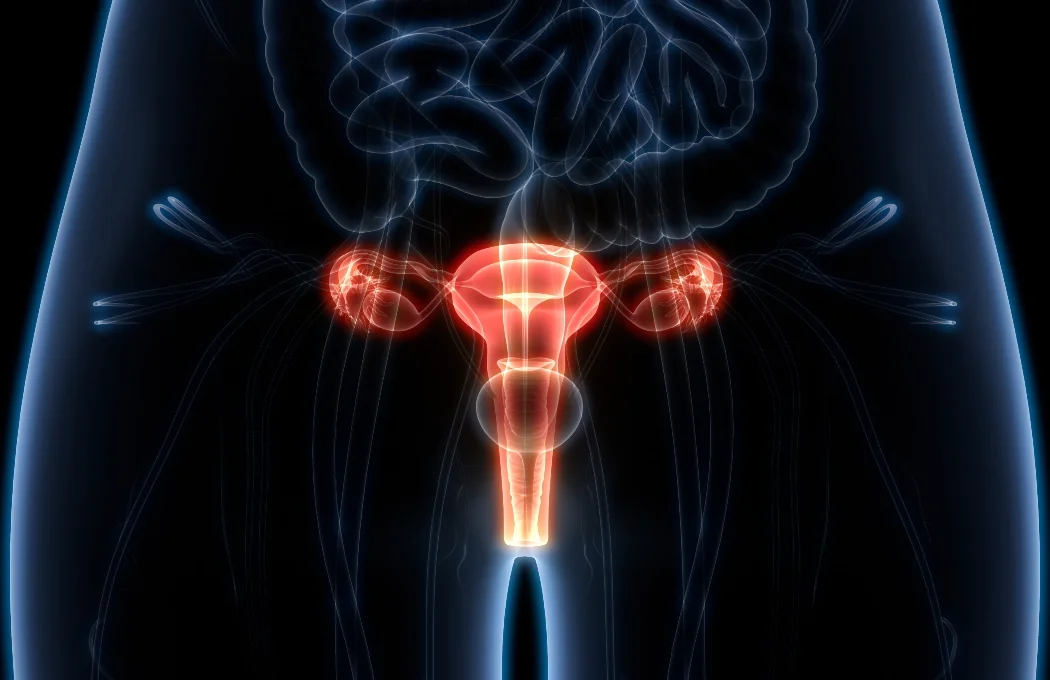
Ovaries
Make reproductive hormones oestrogen and progesterone, important at puberty and regulation of the menstrual cycle. Produce and store eggs. Protect eggs in female foetuses during pregnancy.
Associated disorders
Infertility. Reproductive problems. Abnormal menstrual cycle. Breast cancer.
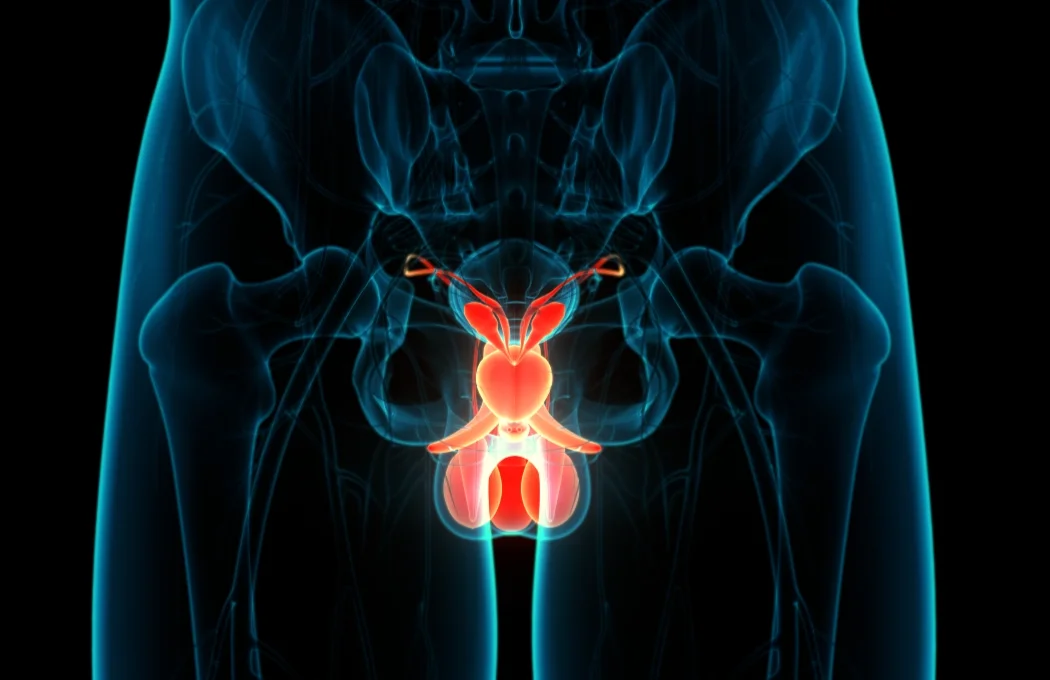
Testes
Produce sperm and testosterone. Important at puberty, especially growth in penis and the healthy production of sperm.
Associated disorders
Infertility. Reproductive problems. Poor sperm quality. Testicular & prostate cancer.
We can test your exposure to suspected endocrine disrupting chemicals



